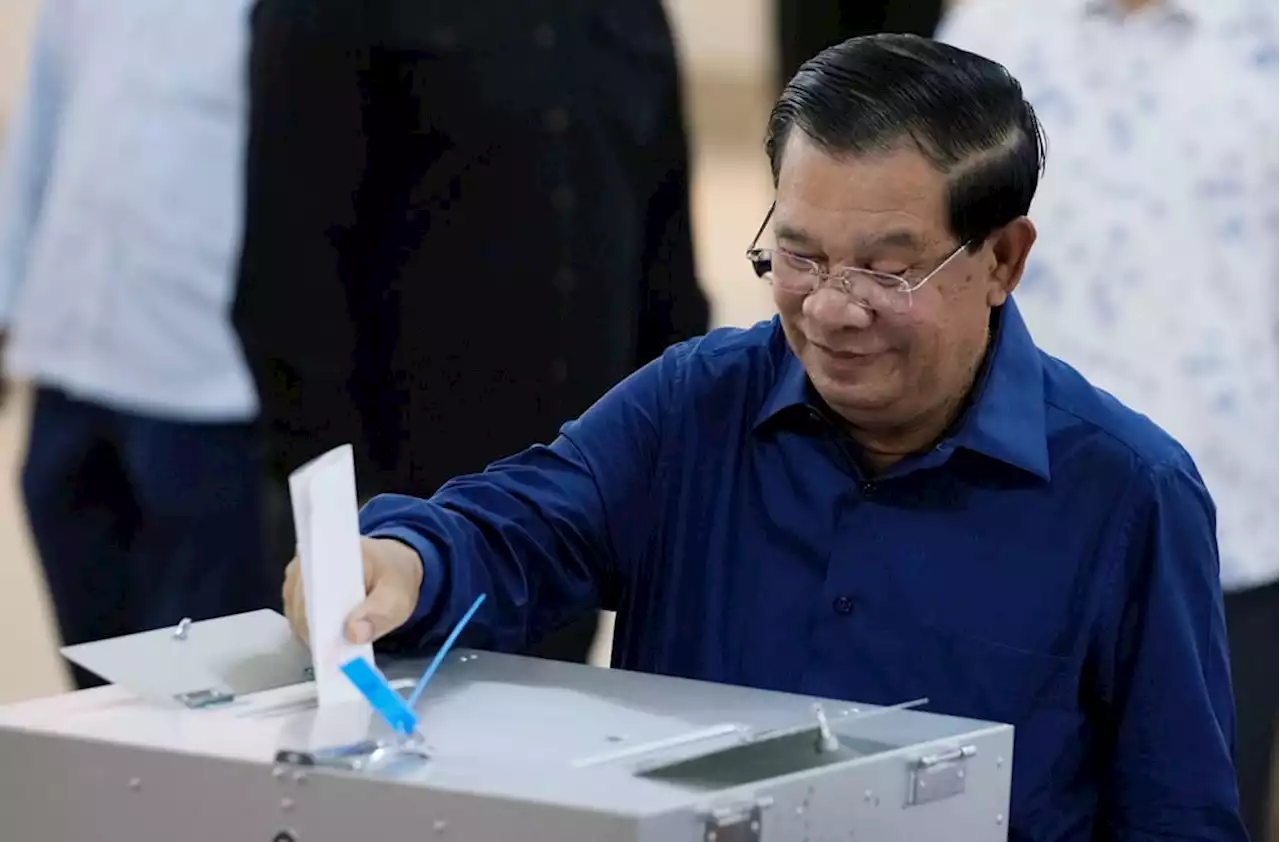
The Controversial Election in Cambodia: Following the election in Cambodia on Sunday, the US Biden administration imposed a visa ban, labeling the election as ‘neither free nor fair’.
Hun Sen’s Cambodian People’s Party (CPP), which has been in power for 38 years, won the election almost unopposed. The CPP’s only strong rival, the Candlelight Party, was banned before the election, making the election virtually one-sided.
In a statement the evening after the vote, State Department spokesman Matthew Miller announced that the country had taken action to impose visa restrictions on people who had “undermined democracy” in Cambodia.
Before the election, Cambodian authorities “threatened and harassed political opponents, members of the media and civil society” and undermined the spirit of the country’s constitution, and questioned Cambodia’s sense of responsibility to the international community, the statement said.
What does the State Department say?
At a news conference following the State Department’s issuance of the visa ban, spokesman Matthew Miller was asked who would be covered by the visa ban and whether there would be anyone from the Cambodian government.
History of visa restrictions in Cambodia
In 2017, the United States imposed a visa ban on the country for the first time after the 2013 elections in Cambodia.
In that election, the opposition CNRP got 55 seats against the ruling CPP’s 68 seats. After the election, the opposition parties and international human rights organizations accused the election of massive rigging.
The opposition CNRP refused to take a seat in parliament and staged anti-government protests for a year until early 2014.
The ruling party harshly suppressed the protests and the CNRP eventually joined parliament on the condition that the government reform the next electoral process.
But in the years that followed, the government clamped down harder on the opposition. In 2017, the Supreme Court banned the CNRP and disqualified its members from parliament.
After this, for the first time, the United States imposed sanctions on corrupt Cambodian businessmen and on various trade aids.
Then in 2019, when the news of the construction of a naval base in Cambodia with the help of China was published, the ban came again from Washington.
And in 2021, the United States imposed sanctions against a Chinese company operating in Cambodia — which was building an airstrip for use by the Chinese Air Force in the Dara Sakor region near the Gulf of Thailand.
The United States imposed another round of visa bans against Cambodia after last Sunday’s election.
Confusing visa policy?
A research report on US sanctions on Cambodia was published in 2022 by Gregory Pauling, senior fellow at the US-based research institute Center for Strategic and International Studies, assistant fellow Charles Dunsott and assistant researcher Simone Tran Hudes.
According to their research, the US attitude towards Cambodia is self-contradictory. U.S. policy toward Cambodia oscillates over whether Cambodia should be punished for its undemocratic practices or viewed as a means to gain geopolitical power, researchers say.
As of June 2022, the United States has a total of 28 sanctions against Cambodia, 26 of which are under a specific statute. Under the Global Magnitsky Human Rights Accountability Act (GMA), they can impose sanctions against individuals or organizations involved in human rights abuses or corruption anywhere in the world.
According to the researchers, it may seem that the main purpose of the US sanctions is to stop human rights violations in Cambodia and to prevent corruption.
But the 2021 sanctions under the GMA against companies building airstrips for the Chinese Air Force suggest that geopolitical interests are being prioritized over human rights abuses or corruption.
Prior to this ban, the US Treasury Department also released a statement in September 2020 expressing concern over ‘harmful Chinese investment in Cambodia’.
Again in 2019, after imposing sanctions on Cambodia due to the construction of a naval base with the help of China, it again took steps to strengthen diplomatic relations with the country.
And amid various restrictions, Cambodian Prime Minister Hun Sen visited the United States for the first time in three decades while participating in the ‘US-ASEAN Special Summit’ in May 2022 and met with President Joe Biden. President Biden also visited Cambodia last November to attend the ASEAN-US meeting.
According to the researchers, Washington needs to adopt more foresight in its strategy regarding Cambodia. Researchers fear that if bilateral relations based on sanctions continue as they are now, they may prolong Hun Sen’s dictatorship without bringing democracy back to Cambodia.